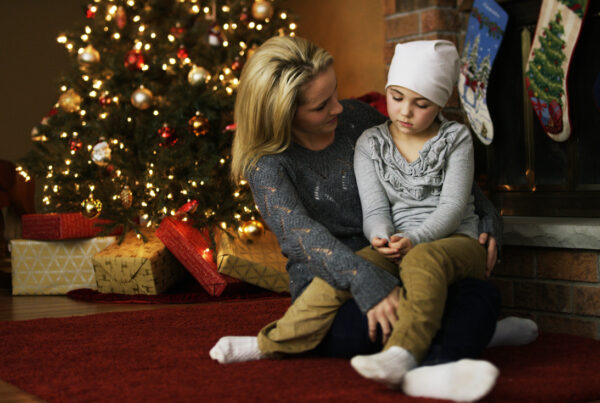By Crystal Williams, Ed.M.
The Division for Early Childhood of the Council of Exceptional Children, the leading professional organization in EI/ECSE, spearheaded efforts to develop the EI/ECSE standards. It is important for all early childhood professionals to be familiar with these standards to provide the support needed for individual children with disabilities and their families. In this blog series, we discuss each standard, prompt questions for reflection, and provide tips and resources that professionals can use to ensure their practices align with the EI/ECSE standards.
Standard 2: Partnering with Families
Members of a child’s family are their first teachers. Professionals working with families is a crucial piece of supporting the growth and development of young children with delays and disabilities. When professionals and families collaborate, children have more opportunities to practice important skills and they demonstrate progress more quickly. Building strong family-professional relationships early in a child’s life can help families navigate special education and disability-related systems later.
| Components | Reflective Questions | |
| 2.1 | Apply knowledge of family-centered practices, family systems theory, and the changing needs and priorities of families to develop quality partnerships |
|
| 2.2 | Communicate clear, comprehensive, and objective information to help families make informed decisions |
|
| 2.3 | Engage families in identifying their strengths, priorities, and concerns, and support families to achieve their goals |
|
Resources to enhance your knowledge related to Standard 2:
- Family-Professional Partnerships Module
This module focuses on developing trusting partnerships, engaging in shared decision-making, and addressing sensitive topics with families. - Family Engagement: Collaborating with Families of Students with Disabilities
The IRIS Center provides training modules on education-related topics. This module discusses ways to engage families of children with disabilities in their children’s education. - Families and Professionals: Trusting Partnerships in General and Special Education (8th edition)
Special education experts specializing in family-professional collaboration authored this book that highlights themes of trust, social justice, and diversity as crucial components of developing partnerships with families. - Care Mapping
Similar to eco mapping, care mapping highlights the connection among a child’s healthcare system, school, home, and community.
Tips for improving your practice related to Standard 2:
- Ensure that each family member who wants to be involved in a child’s learning and development has opportunities to engage in ongoing communication, meetings, etc.
- Assist families to develop an Ecomap or Care map (see links above) that highlights their support networks and resources. Use the information shared on the map to inform your understanding and interactions with the family. Identify gaps in resources and help families locate new supports/resources (i.e., family support groups, subsidized childcare).
- Engage in reciprocal learning with families. Professionals are experts on child development and learning, but families are the expert on their child.
- Use a strengths-based approach by acknowledging what children and families do well and using their strengths as a catalyst for growth in other areas.
- Help families prepare for transitions and events (i.e., medical visits, starting childcare, the arrival of a new sibling).
- Establish consistent routines when interacting with families (i.e., send a reminder the day before meetings, start each meeting by sharing a celebration).
Additionally, professionals working with families of children who have intense support needs (e.g., medical complexities, significant intellectual disabilities) may benefit from additional strategies.
Tips for Partnering with Families of Children with Intensive Needs
- Gain information from families regularly to ensure you are up to date on the child’s medical and/or disability-related needs.
- Help prepare families to be advocates for their children by sharing information about disability-related organizations, policies, and laws that impact their children.













